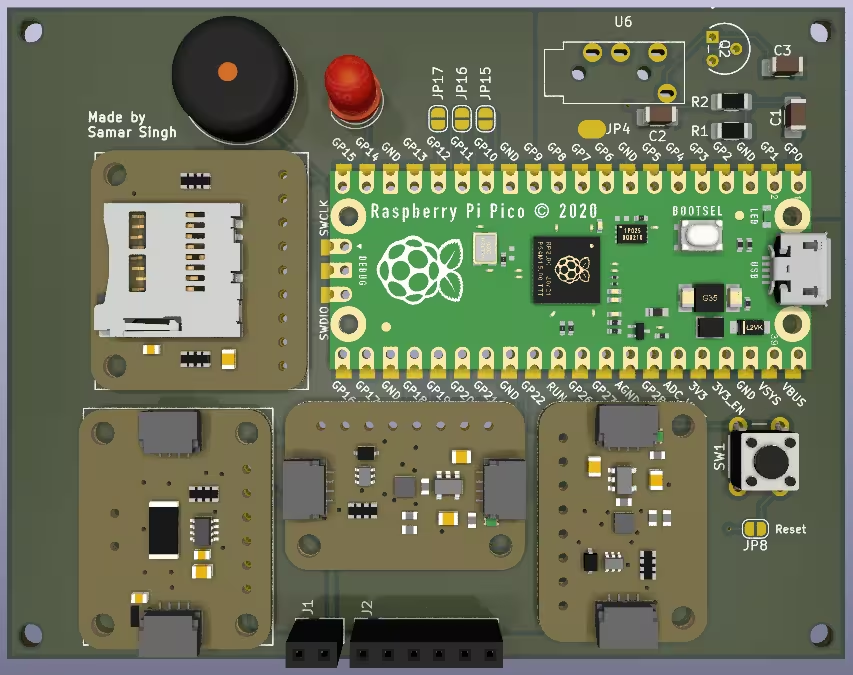Rocket Telemetry System for NASA SL
·

Table of Contents
NASA SL Challenge
This project implements a data collection system for model rockets using a Raspberry Pi Pico, encoding telemetry data into audio signals transmitted via the AX.25/APRS protocol. The system is designed to work with affordable amateur radio equipment and can be easily deployed within the constraints of a model rocket.
Required 3 or more data points. This is capable of doing all 8.
- Temperature of landing site
- Apogee reached
- Battery check/power status
- Orientation of on-board STEMnauts
- Time of landing
- Maximum velocity
- Landing velocity, G-forces sustained
- Calculated STEMnaut crew survivability
Features
- Data Encoding and Decoding: Telemetry data is encoded into audio signals using the APRS protocol and decoded by a compatible receiver.
- Raspberry Pi Pico: Utilizes the Pico's capabilities for processing and communication while keeping the system compact and cost-effective.
- Low-Cost, Lightweight Solution: Designed to be as inexpensive as possible while maintaining reliability, suitable for space-limited applications like model rockets.
Hardware
- Raspberry Pi Pico: A low-cost microcontroller used for data processing and APRS encoding.
- Amateur Radio Transceiver: For transmitting and receiving the encoded APRS signals (ex: Baofeng UV-5R).
- Audio Cable: To connect the transmitter to the Pico and the receiver to the decoder.
- Antennas: Designed for receiving weak signals in various environments.
- APRS Decoder: For converting the received signal to readable data (ex: Direwolf)
- Power Supply: Adequate power supply for the Raspberry Pi Pico and radio equipment (ex: batteries).
Software
- C and C++: Programming languages used for writing and uploading the firmware to the Raspberry Pi Pico.
- AX.25 Protocol Libraries: Libraries for encoding and decoding AX.25 signals.
- Radio Receiver Software: Compatible software for decoding the AX.25 protocol from the radio receiver (ex: soundcard-based decoders or SDR software).